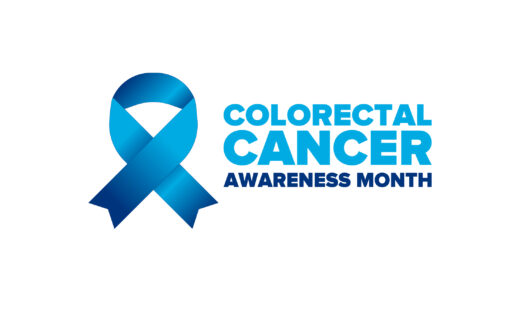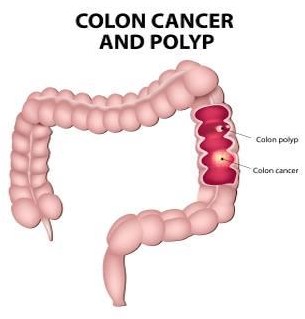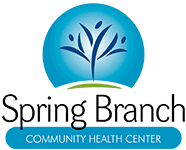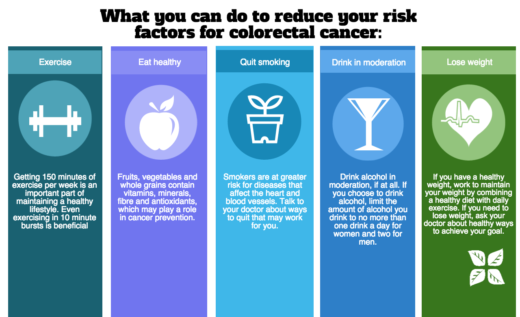March Is Colorectal Cancer Awareness Month

March Is Colorectal Cancer Awareness Month
a time to consider our risks, to take steps to reduce them and to get tested.
 What is Colorectal Cancer?
What is Colorectal Cancer?
Colorectal cancer is a disease in which cells in the colon or rectum grow out of control. Sometimes it is called colon cancer, for short. The colon is the large intestine or large bowel. The rectum is the passageway that connects the colon to the anus.
Colorectal cancer is fourth most common cancer in men and women. (Source: CDC)
What are the symptoms of colorectal cancer?
Someone could have colorectal cancer and not know it. People do not always have symptoms.
If there are symptoms, they may include:
- Changes in your bowel habits.
- Blood in or on your stool (bowel movement).
- Abdominal pain, aches, or cramps that don’t go away.
- Unexplained weight loss.
What are the risk factors for colorectal cancer?
While anyone can develop colorectal cancer, a few conditions can increase risk.
- Inflammatory bowel diseases such as Crohn’s disease or ulcerative colitis
- A personal or family history of colorectal cancer or colorectal polyps
- A genetic syndrome such as familial adenomatous polyposis (FAP) or hereditary non-polyposis colorectal cancer (Lynch syndrome)
- Black/African Americans and Ashkenazi Jews are at higher risk
Colorectal cancer screening saves lives?
According to the The Centers for Disease Control (CDC), about nine out of every 10 people whose colorectal cancers are found early and treated appropriately are still alive five years later.
Regular screening, beginning at age 45, is the key to preventing colorectal cancer. If you’re 45 to 75 years old, get screened for colorectal cancer regularly, starting now! The sooner the better. Speak to your doctor about your screening options today.
How can I reduce my risk?
- Eat healthy!
- Get physical!
- Get screened regularly!
To learn more visit https://www.cdc.gov/cancer/dcpc/resources/features/colorectalawareness/index.htm

